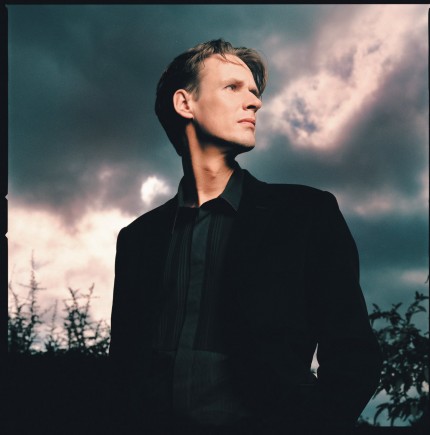Ian Bostridge brings his singular enlightened artistry to the Harris

“The Three Tenors”, classical music’s most profitable and tiresome marketing gimmick, mercifully ran out of steam some years ago. It comes as no small surprise to find Ian Bostridge, that most serious and probing of tenors, reviving the concept with a fresh, historical twist. His concert with Les Violons du Roy Friday night at the Harris Theater was a salute to three vocal superstars of the Baroque era and the part they played in steering audiences away from traditional castrati to the standard tenor roles of later eras.
The concert was a generous helping of vocal and ensemble works braised in a heady stew of scholarly acumen and piercing artistic insight. Bostridge has long favored programming schemes that forsake the standard lieder or aria recital format, and like his earlier projects, this performance left his listeners both moved and enlightened.
The only slight and short-lived impediment was a brush with allergies, a malady that caused only an occasional balance problem in his lower register. His oft-noted stage tendency to stare into the floor for long stretches didn’t help in a hall as steeply raked upward as the Harris Theater. Otherwise his voice was in fine form, and his uncanny way of fusing text and tone left his sizable local fan base utterly enthralled.
The program bounced between Italy and Britain, with Handel given a predominant presence. After a cautious reading of that composer’s Forte e lieto from Tamerlano, Bostridge loosened up for a bold, blustery version of the identically named aria from the same libretto by the little-known Francesco Gasparini. Caldara’s Lo So, con periglio from the opera Joaz was centered a bit higher in pitch, and the tenor’s gleaming, pure vowels were easily propelled to the back rows.
When the arias’ text took a heroic turn, Bostridge summoned the needed steel in his tone. Handel’s Scorta a passi miei from Giulio Cesare was etched with penetrating gleam and exacting rhythmic bite. He relished the role of Alexander the Great in D’un Barbaro scortese from Handel’s Poro, drawing on sharp-edged diction and thrilling bravura command of virtuosic runs. A pair of Vivaldi arias came with similar dramatic punch.
The tenors’ unerring involvement with the words was particularly moving in Handel’s From celestial seats descending (Hercules). This and an encore from Ariodante evoked a dusky, caressing lyricism, continuously modulating with the unfolding text.
Bostridge chooses his collaborators wisely, and he has hit another jackpot with the Québec City-based Les Violons du Roy under the guidance of Bernard Labadie. The group sported the same propulsive vigor heard at Ravinia a few years back, but now boasts a polish and sheen that puts them squarely in the top rank of period instrument ensembles. While the connection between singer and instrumentalists was uncanny, the troupe brought plenty of material to explore on their own.
Labadie led exuberant performances of Handel’s F major Concerto grosso and a suite from Alcina, as well as a symphony from William Boyce and another concerto from Geminiani. The realizations were brisk, meticulous, and brightly colored, though one longed for an occasional respite from the unremittingly brisk tempos.
Posted in Performances

